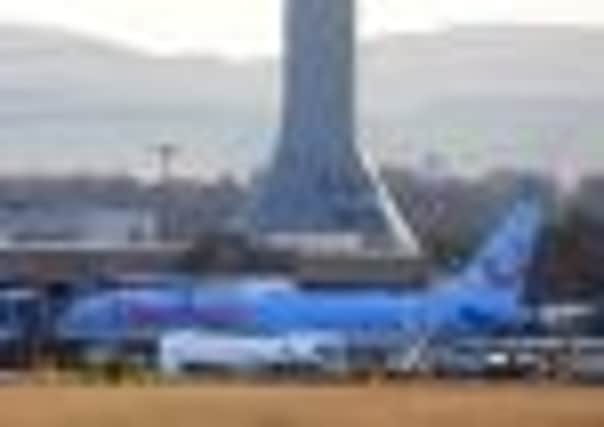Airport fuel crisis ‘just hours away’


In an unprecedented two-day crisis last month, Edinburgh Airport was forced to ration fuel to airlines after deliveries were halted following a contamination incident at a refinery. Glasgow Airport also had to impose rationing, while aircraft using both airports had to make extra stops to refuel elsewhere.
Scotland’s two other main airports – Aberdeen and Prestwick – were also forced to make contingency plans.
Advertisement
Hide AdAdvertisement
Hide AdAirport officials are understood to be angry at the lack of emergency plans by the Grangemouth refinery to maintain deliveries following the contamination incident.
One source said: “We were close to being empty. The only reason that Scottish aviation did not come to a halt was the contingency plans we introduced.”
A meeting is now due to be held tomorrow involving the airports and Grangemouth refinery operator Petroineos over back-up plans to avert a repeat of the debacle.
A spokesman for Edinburgh Airport, which handles nine million passengers a year, said: “The crisis stretched our plans and reserves, and we’re keen to understand how other parties involved develop and implement their contingency plans.
“We welcome this meeting of all parties and look forward to working with all to ensure that should fuel production at Grangemouth be halted, Scotland’s airports can still rely on a supply of fuel.”
Glasgow Airport, which has seven million annual passengers, called for “robust measures” to be introduced to avoid such drastic action again.
The problem is believed to have happened during upgrading work on tanks at the refinery. This is thought to have led to aviation fuel being produced with a higher freezing point than the required -47C, which is necessary to ensure fuel stays liquid at high altitudes.
The problem left Edinburgh Airport with just 100,000 litres of fuel – or just 7 per cent of its 1.4 million litre tanks – only enough to fill up four medium size aircraft.
Advertisement
Hide AdAdvertisement
Hide AdGlasgow’s stocks also dwindled, but were less depleted because it has larger tanks to cope with more long-haul flights. The airport was down to 500,000 litres in its 3.9 million litre tanks.
The two airports each handle 200-300 takeoffs and landings a day. When the airports were alerted to the problem, they initially asked airlines, on 21 October, to fly in with as much fuel as possible to preserve stocks. This meant some aircraft having to make unscheduled extra stops.
They included US-bound flights having to land in Belfast or Dublin, and a Greece-Glasgow plane touching down in Newcastle to replenish its tanks. However, within hours, and with no clear information about how long before deliveries would resume, the airports started rationing fuel.
A Glasgow Airport spokesman said: “By using our on-site storage facility and working with our airline partners to implement contingency plans, we were able to minimise disruption to services following last month’s fuel issues at Ineos. This meeting will provide an opportunity for all parties to ensure appropriate and robust measures are in place in the event of any future interruption to fuel supplies.”
Aberdeen and Prestwick airports said they were both made aware of “issues at Grangemouth” and worked with airlines to prepare contingencies, but operations were not affected.
A spokesman for the Scottish Government said: “Scottish airports activated contingency plans involving Scottish Government officials to ensure supplies of aviation fuel were maintained and to avoid any travel disruption for passengers.
“As is normal in such circumstances, follow-up meetings will be held to identify any lessons and to try to ensure that the situation does not arise again in the future.”
Petroineos declined to provide details of the contamination incident, but a spokesman revealed it had “identified an issue with one of the refinery processes necessary to produce a component of jet fuel”.
He added: “Production was stopped, the issue corrected and product re-tested before blending recommenced.”
Twitter: @AlastairDalton